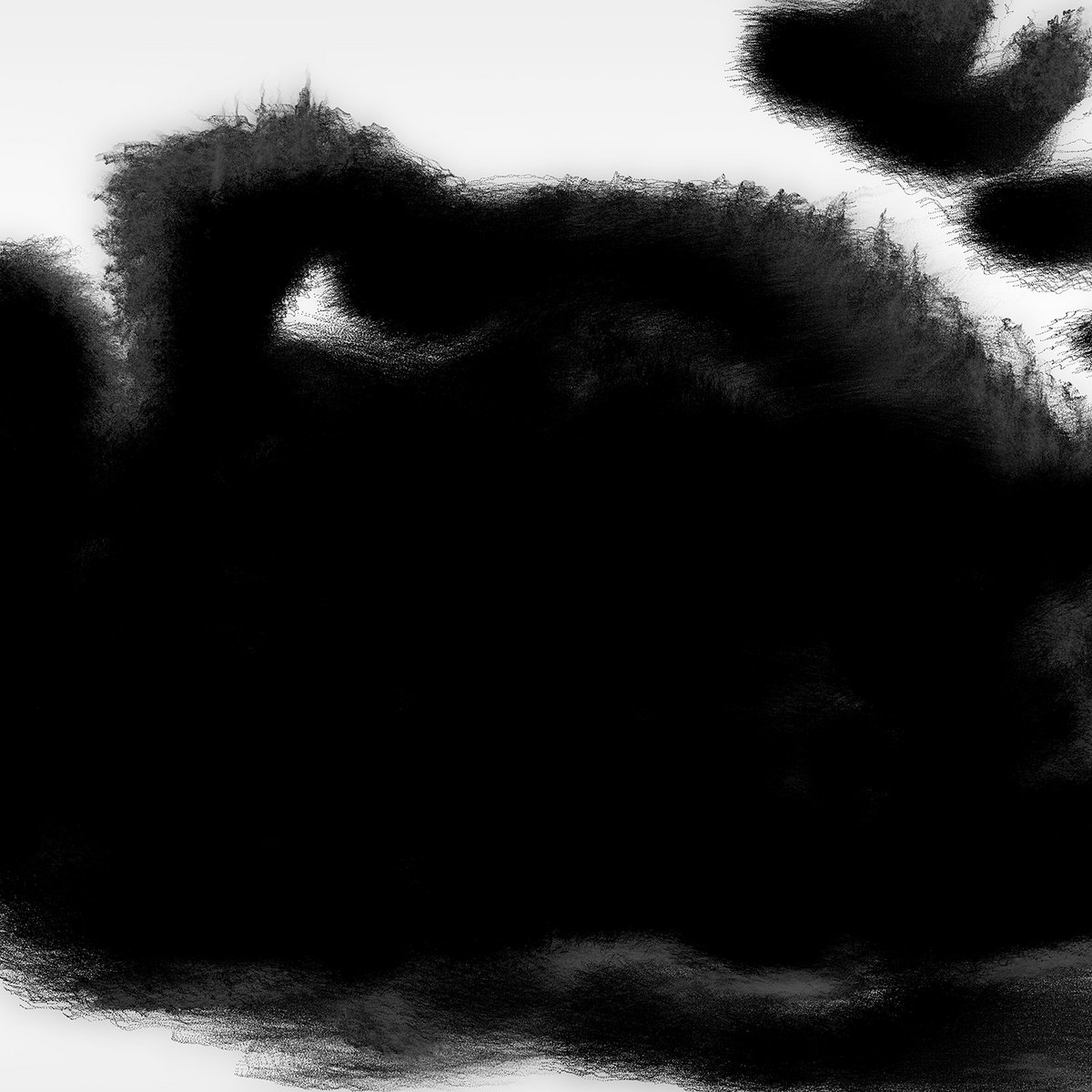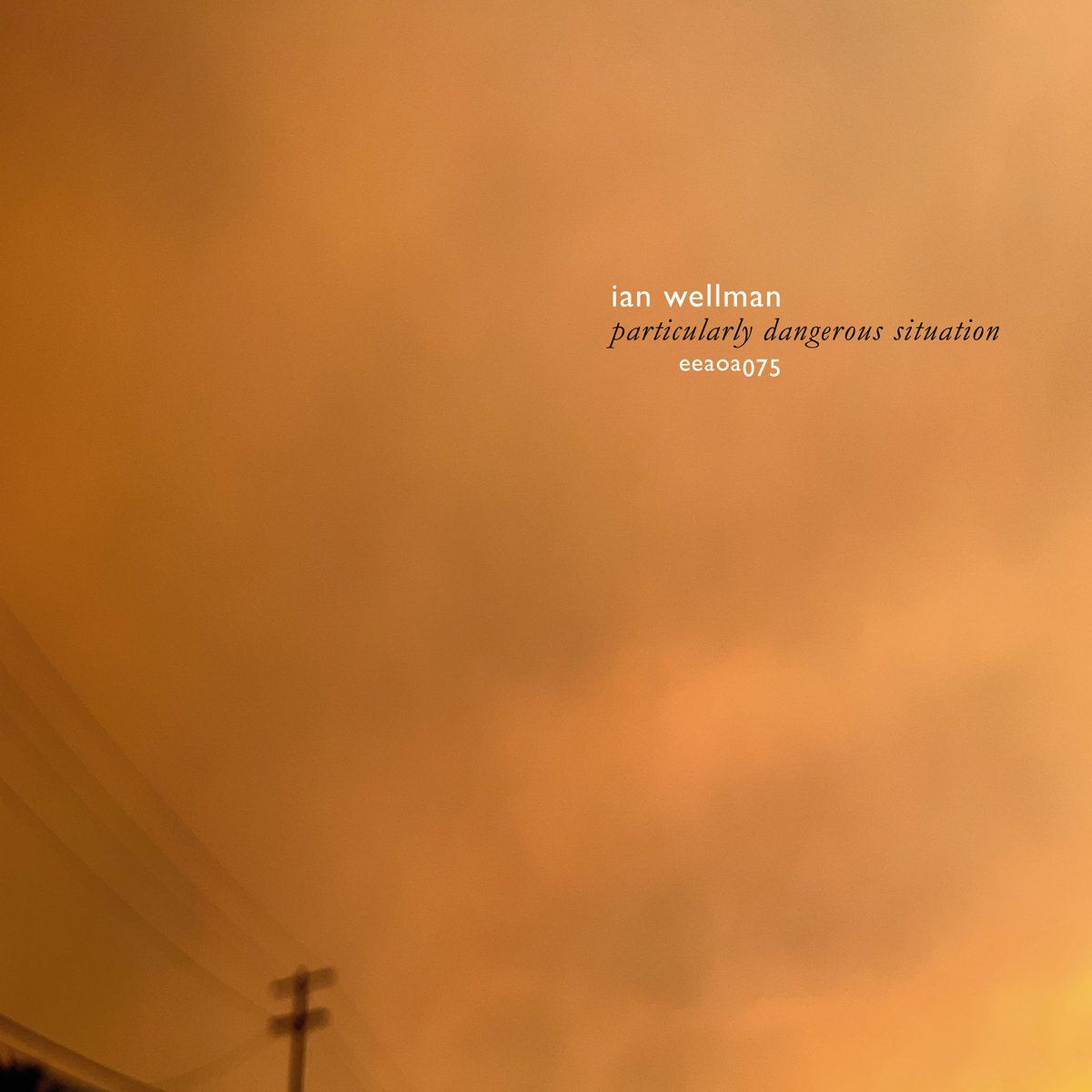Podcast Episodes 779 and 780 are live

Rounding out February
Episode 779 features newer music from Cabaret Voltaire, I Speak Machine ft. Gary Numan, Galactic Embrace, Johnny Sais Quoi, Aja Monet, Rat Heart, Sugar Plant, and Bill Orcutt, plust some older music from Ebo Taylor & Uhuru-Yenzu, and Gazelle Twin.
Episode 780 has new tunes by James Blackshaw, Miss Grit, and SQ Mice, plus some music from the vaults by Mike Dunn, Johnnie Clarke, Nina Nastasia, S. Carey, Little Annie, K. Alexi, and Éliane Radigue.
Pole with keys in Wellington New Zealand photo by Mike.
Get involved: subscribe, review, rate, share with your friends, send images!















Read more …



 I had admittedly become a bit numb to this prolific Kenyan producer’s steady stream of ambient releases in the years since he first burst onto the scene with 2020’s Peel, but this second Editions Mego album is one hell of a stunner. Fittingly, Kin first began to take shape in 2021 when KMRU discussed his vision for Peel’s sequel with label head Peter Rehberg, but that particular vision was unsurprisingly put on ice with Rehberg’s untimely passing. After about a year, however, KMRU gradually returned to that material and a rather different and noisier vision began to take shape instead. Partially inspired by distorted guitar sounds of KMRU’s youth, the viscerally snarling and smoldering Kin sounds like one of his stronger ambient albums was doused with gas and set ablaze. Fittingly, that vision is reminiscent of some of the best bits of Pita’s Get Out and Rehberg’s former bandmate Christian Fennesz turns up to the party as well, which makes Kin feel like both KMRU’s finest album to date and an improbable late-period return to Editions Mego’s golden age.
I had admittedly become a bit numb to this prolific Kenyan producer’s steady stream of ambient releases in the years since he first burst onto the scene with 2020’s Peel, but this second Editions Mego album is one hell of a stunner. Fittingly, Kin first began to take shape in 2021 when KMRU discussed his vision for Peel’s sequel with label head Peter Rehberg, but that particular vision was unsurprisingly put on ice with Rehberg’s untimely passing. After about a year, however, KMRU gradually returned to that material and a rather different and noisier vision began to take shape instead. Partially inspired by distorted guitar sounds of KMRU’s youth, the viscerally snarling and smoldering Kin sounds like one of his stronger ambient albums was doused with gas and set ablaze. Fittingly, that vision is reminiscent of some of the best bits of Pita’s Get Out and Rehberg’s former bandmate Christian Fennesz turns up to the party as well, which makes Kin feel like both KMRU’s finest album to date and an improbable late-period return to Editions Mego’s golden age.  This latest album from Christian Schoppik feels like a bit of a curious outlier or comparatively modest release in the wake of last year’s stellar Unterhaltungen Mit Larven Und Überresten, but it is a characteristically fascinating one nonetheless. Schoppik’s collaborator this time around is Matthias Kremsreiter, who debuts his new Roudi Vagou alias but normally records as alibikonkret. While the two artists certainly share a fondness for dark psychedelia and haunted atmospheres, Taghelle Nacht (Daylight Night) feels like a completely new vision that suggests a Bavarian twist on Grey Gardens experienced from the perspective of a ghost and DJed by The Caretaker’s haunted Victrola: a slow-motion drift through the moldering, dust-covered ruins of a once-opulent seaside mansion in which vivid memories of the past continually bleed into the present in subtly unsettling and hallucinatory fashion.
This latest album from Christian Schoppik feels like a bit of a curious outlier or comparatively modest release in the wake of last year’s stellar Unterhaltungen Mit Larven Und Überresten, but it is a characteristically fascinating one nonetheless. Schoppik’s collaborator this time around is Matthias Kremsreiter, who debuts his new Roudi Vagou alias but normally records as alibikonkret. While the two artists certainly share a fondness for dark psychedelia and haunted atmospheres, Taghelle Nacht (Daylight Night) feels like a completely new vision that suggests a Bavarian twist on Grey Gardens experienced from the perspective of a ghost and DJed by The Caretaker’s haunted Victrola: a slow-motion drift through the moldering, dust-covered ruins of a once-opulent seaside mansion in which vivid memories of the past continually bleed into the present in subtly unsettling and hallucinatory fashion.  This mesmerizing opus from NYC-based composer Irisarri first began its life with a chance meeting at MUTEK in Mexico City, as a conversation with Dutch media artist Jaco Schilp regarding how technology shapes perception led to an invitation to a collaborative residency at Uncloud (located in a former psychiatric prison in Utrecht). Appropriately, that original topic relates closely to the album’s overarching concept, as Points of Inaccessibility reflects the pervasive isolation and alienation that has resulted from living illusory digital lives (“we inhabit spaces saturated with signals, yet the possibility of genuine contact becomes increasingly remote”). Schilp’s visual research also played a significant role in the album’s shape, as Irisarri’s sounds were processed through “custom point-cloud software patch that produced images in continuous flux” in which “visuals flickered, dissolved and reformed like memories that resist coherence, functioning as a digital Rorschach that reflected the observer’s own perception.” The music achieves a very similar end, as warm and beautiful forms endlessly blossom and dissolve in a roiling ocean of static.
This mesmerizing opus from NYC-based composer Irisarri first began its life with a chance meeting at MUTEK in Mexico City, as a conversation with Dutch media artist Jaco Schilp regarding how technology shapes perception led to an invitation to a collaborative residency at Uncloud (located in a former psychiatric prison in Utrecht). Appropriately, that original topic relates closely to the album’s overarching concept, as Points of Inaccessibility reflects the pervasive isolation and alienation that has resulted from living illusory digital lives (“we inhabit spaces saturated with signals, yet the possibility of genuine contact becomes increasingly remote”). Schilp’s visual research also played a significant role in the album’s shape, as Irisarri’s sounds were processed through “custom point-cloud software patch that produced images in continuous flux” in which “visuals flickered, dissolved and reformed like memories that resist coherence, functioning as a digital Rorschach that reflected the observer’s own perception.” The music achieves a very similar end, as warm and beautiful forms endlessly blossom and dissolve in a roiling ocean of static. 
 This genre-blurring Dutch quartet describes their sound as a “joyous mix of disco, funk, surf, psychedelia, and Southeast Asian motifs,” but the way those influences are juggled and balanced has been in a continual state of flux since the band’s earliest singles. That stylistic volatility seems to be by design, however, as co-founder/drummer Kees Berkers notes that the band’s name differs from Yin Yang in that it alludes to “two negative forces that cannot reach a common ground” and that the band’s mission is about “finding a balance in the unbalanced.” Unsurprisingly, that approach has resulted in a bit of hit-or-miss discography over the years, but Yīn Yīn can be a hell of a great band when all of their colliding influences come together just right. In this case, the band’s unbalanced balance most often sounds like an excellent surf guitarist backed by a solid disco rhythm section and it characteristically yields yet another handful of fun and eclectic singles.
This genre-blurring Dutch quartet describes their sound as a “joyous mix of disco, funk, surf, psychedelia, and Southeast Asian motifs,” but the way those influences are juggled and balanced has been in a continual state of flux since the band’s earliest singles. That stylistic volatility seems to be by design, however, as co-founder/drummer Kees Berkers notes that the band’s name differs from Yin Yang in that it alludes to “two negative forces that cannot reach a common ground” and that the band’s mission is about “finding a balance in the unbalanced.” Unsurprisingly, that approach has resulted in a bit of hit-or-miss discography over the years, but Yīn Yīn can be a hell of a great band when all of their colliding influences come together just right. In this case, the band’s unbalanced balance most often sounds like an excellent surf guitarist backed by a solid disco rhythm section and it characteristically yields yet another handful of fun and eclectic singles.
 I first encountered Los Angeles-based composer Daniel Lea through L A N D’s excellent Anoxia album back in 2015, but he has become considerably more prolific in recent years after launching his own Vast Habitat imprint. This first collaboration with London-based violinist/cellist Jamie Michael McCarthy has apparently been a decade in the making and borrows both its title and some of its ingenious inspiration from an eye test chart that McCarthy found on the street. On its face, the resultant album has the shapeshifting moods and immersive spell of an art-damaged science fiction score, but immersive headphone listening reveals a considerably deeper and more compelling vision lurking within. Part of that is due to Lea’s considerable sound design talents and inventive assimilation of influences ranging from austere dub techno to avant-garde piano composers and contemporary electronic heavy hitters like Ben Frost and Tim Hecker, but the unusual structural dynamics of these pieces are quite unique and mirror the shifting depth of field that one might get from experimenting with different lenses.
I first encountered Los Angeles-based composer Daniel Lea through L A N D’s excellent Anoxia album back in 2015, but he has become considerably more prolific in recent years after launching his own Vast Habitat imprint. This first collaboration with London-based violinist/cellist Jamie Michael McCarthy has apparently been a decade in the making and borrows both its title and some of its ingenious inspiration from an eye test chart that McCarthy found on the street. On its face, the resultant album has the shapeshifting moods and immersive spell of an art-damaged science fiction score, but immersive headphone listening reveals a considerably deeper and more compelling vision lurking within. Part of that is due to Lea’s considerable sound design talents and inventive assimilation of influences ranging from austere dub techno to avant-garde piano composers and contemporary electronic heavy hitters like Ben Frost and Tim Hecker, but the unusual structural dynamics of these pieces are quite unique and mirror the shifting depth of field that one might get from experimenting with different lenses.

 This latest EP from the ever-compelling Diamanda Galás has had quite an interesting journey, as it first began its life in an evolving larger work entitled "Das Fieberspital (The Fever Hospital)," which is a “musical setting of Georg Heym’s early 20th Century expressionist poem about patients stigmatized by yellow fever.” At some point, however, Galás concluded that “the piano skeleton had become its own work” and its (mostly improvised) performance was released as De-formation: Piano Variations back in 2020. Five years later, she was inspired to ambitiously rework that piece for a Paris performance at the Pinault Collection celebrating the legacy of fellow iconoclastic composer Maryanne Amacher. Now in deconstructed, reconstructed, and characteristically volcanic new form, De-formation: Second Piano Variations presents Galás’ “definitive” performance of that visceral tour de force.
This latest EP from the ever-compelling Diamanda Galás has had quite an interesting journey, as it first began its life in an evolving larger work entitled "Das Fieberspital (The Fever Hospital)," which is a “musical setting of Georg Heym’s early 20th Century expressionist poem about patients stigmatized by yellow fever.” At some point, however, Galás concluded that “the piano skeleton had become its own work” and its (mostly improvised) performance was released as De-formation: Piano Variations back in 2020. Five years later, she was inspired to ambitiously rework that piece for a Paris performance at the Pinault Collection celebrating the legacy of fellow iconoclastic composer Maryanne Amacher. Now in deconstructed, reconstructed, and characteristically volcanic new form, De-formation: Second Piano Variations presents Galás’ “definitive” performance of that visceral tour de force. To celebrate the remastered tenth anniversary reissue of his 2015 opus A Fragile Geography, Rafael Anton Irisarri invited an eclectic murderers’ row of his friends and peers to work their transformative magic on his source material. That was a bit of a bold and inspired decision given that the original album is quite bleak and grayscale in nature, but Irisarri’s well-chosen group of reinterpreters found a number of fresh and inventive ways to highlight their most inspired bits or sharpen them into something that beautifully transcends their original inspiration. To my ears, Abul Mogard and Kevin Martin largely steal the show with their killer contributions, but this whole album is a quite a fascinating companion piece to one of Irisarri’s most celebrated albums (and even manages to surpass it on several occasions).
To celebrate the remastered tenth anniversary reissue of his 2015 opus A Fragile Geography, Rafael Anton Irisarri invited an eclectic murderers’ row of his friends and peers to work their transformative magic on his source material. That was a bit of a bold and inspired decision given that the original album is quite bleak and grayscale in nature, but Irisarri’s well-chosen group of reinterpreters found a number of fresh and inventive ways to highlight their most inspired bits or sharpen them into something that beautifully transcends their original inspiration. To my ears, Abul Mogard and Kevin Martin largely steal the show with their killer contributions, but this whole album is a quite a fascinating companion piece to one of Irisarri’s most celebrated albums (and even manages to surpass it on several occasions).